第37章 THE CROSS AND THE CRESCENT(4)
Can we help inquiring in what the strength of Islamism lay? I, at least, cannot. I cannot help feeling that I am bound to examine in what relation the creed of Omar and Amrou stands to the Alexandrian speculations of five hundred years, and how it had power to sweep those speculations utterly from the Eastern mind. It is a difficult problem;to me, as a Christian priest, a very awful problem. What more awful historic problem, than to see the lower creed destroying the higher? to see God, as it were, undoing his own work, and repenting Him that He had made man? Awful indeed: but I can honestly say, that it is one from the investigation of which I have learnt--I cannot yet tell how much:
and of this I am sure, that without that old Alexandrian philosophy, Ishould not have been able to do justice to Islam; without Islam I should not have been able to find in that Alexandrian philosophy, an ever-living and practical element.
I must, however, first entreat you to dismiss from your minds the vulgar notion that Mohammed was in anywise a bad man, or a conscious deceiver, pretending to work miracles, or to do things which he did not do. He sinned in one instance: but, as far as I can see, only in that one--Imean against what he must have known to be right. I allude to his relaxing in his own case those wise restrictions on polygamy which he had proclaimed. And yet, even in this case, the desire for a child may have been the true cause of his weakness. He did not see the whole truth, of course: but he was an infinitely better man than the men around: perhaps, all in all, one of the best men of his day. Many here may have read Mr. Carlyle's vindication of Mohammed in his Lectures on Hero Worship; to those who have not, I shall only say, that I entreat them to do so; and that I assure them, that though I differ in many things utterly from Mr. Carlyle's inferences and deductions in that lecture, yet that I am convinced, from my own acquaintance with the original facts and documents, that the picture there drawn of Mohammed is a true and a just description of a much-calumniated man.
Now, what was the strength of Islam? The common answer is, fanaticism and enthusiasm. To such answers I can only rejoin: Such terms must be defined before they are used, and we must be told what fanaticism and enthusiasm are. Till then I have no more e priori respect for a long word ending in -ism or -asm than I have for one ending in -ation or -ality. But while fanaticism and enthusiasm are being defined--a work more difficult than is commonly fancied--we will go on to consider another answer. We are told that the strength of Islam lay in the hope of their sensuous Paradise and fear of their sensuous Gehenna. If so, this is the first and last time in the world's history that the strength of any large body of people--perhaps of any single man--lay in such a hope. History gives us innumerable proofs that such merely selfish motives are the parents of slavish impotence, of pedantry and conceit, of pious frauds, often of the most devilish cruelty: but, as far as my reading extends, of nothing better. Moreover, the Christian Greeks had much the same hopes on those points as the Mussulmans; and similar causes should produce similar effects: but those hopes gave them no strength. Besides, according to the Mussulmans' own account, this was not their great inspiring idea; and it is absurd to consider the wild battle-cries of a few imaginative youths, about black-eyed and green-kerchiefed Houris calling to them from the skies, as representing the average feelings of a generation of sober and self-restraining men, who showed themselves actuated by far higher motives.
Another answer, and one very popular now, is that the Mussulmans were strong, because they believed what they said; and the Greeks weak, because they did not believe what they said. From this notion I shall appeal to another doctrine of the very same men who put it forth, and ask them, Can any man be strong by believing a lie? Have you not told us, nobly enough, that every lie is by its nature rotten, doomed to death, certain to prove its own impotence, and be shattered to atoms the moment you try to use it, to bring it into rude actual contact with fact, and Nature, and the eternal laws? Faith to be strong must be faith in something which is not one's self; faith in something eternal, something objective, something true, which would exist just as much though we and all the world disbelieved it. The strength of belief comes from that which is believed in; if you separate it from that, it becomes a mere self-opinion, a sensation of positiveness; and what sort of strength that will give, history will tell us in the tragedies of the Jews who opposed Titus, of the rabble who followed Walter the Penniless to the Crusades, of the Munster Anabaptists, and many another sad page of human folly. It may give the fury of idiots; not the deliberate might of valiant men. Let us pass this by, then; believing that faith can only give strength where it is faith in something true and right:
and go on to another answer almost as popular as the last.